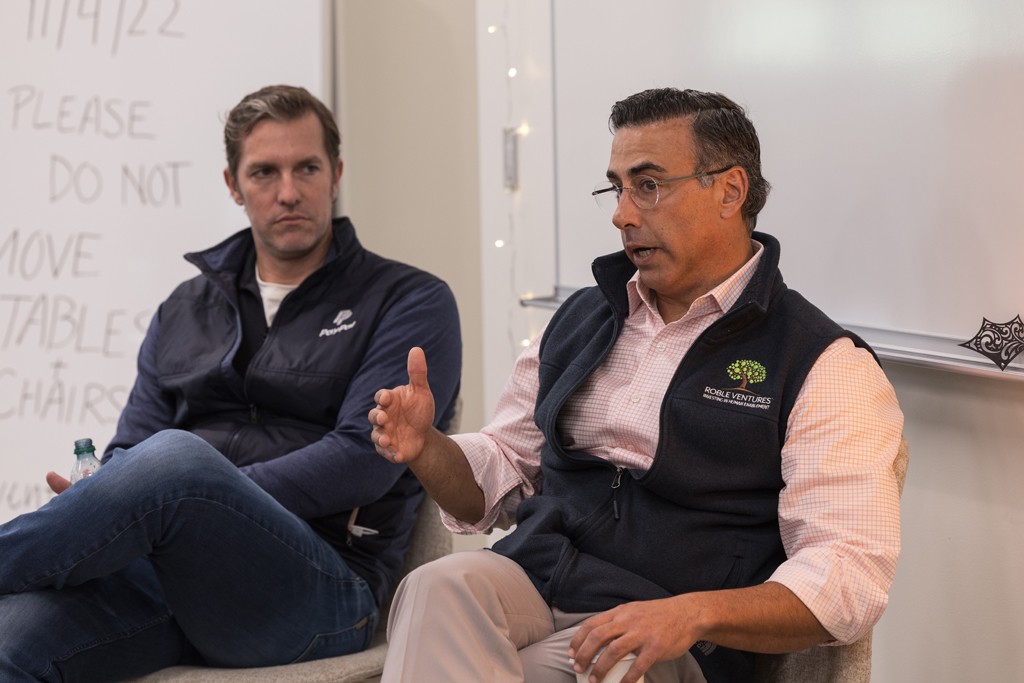Diversity and Mentorship in Venture Capital
James Loftus ’00, managing partner at PayPal Ventures, and Sergio Monsalve, P’26, founding partner at Roble Ventures, spoke about their work experiences in the venture capital industry at a Winston Center and Shea Center collaboration event.
Sergio Monsalve, originally from Mexico, came to the United States when he was 13. After graduating from Stanford University, he attended Harvard Business School and worked in various roles, from finance to marketing. Monsalve spoke briefly about his trials and errors in different jobs. In the past, he received funding from investors for a company he worked for but unfortunately lost all of their money. However, from this experience and other positions, he realized that he was accumulating skills that he didn’t initially realize. Now, he focuses on human enablement, which uses software systems to expose people to more opportunities and get socially and economically ahead.
James Loftus first started his career as a lawyer. He eventually went into corporate development, which he said is mergers and acquisitions from the business side, and now works in fintech.
Loftus mentioned that women and underrepresented minorities represent a shockingly small percentage of founders that get funded. As a result of their marginalized identities, there are different networks and outcomes for them. Also, since they are undervalued within the business field, they usually don’t receive the funds they seek. In terms of diversity, Monsalve believes that if you have a purpose you can help people; doing so would diversify people’s thinking. Additionally, Loftus emphasized that being a venture capitalist means deciding who should or shouldn’t receive funding.
Monsalve and Loftus also agreed that mentorship is essential in venture capital: It’s important to pay attention to your relationships with people and be aware of the opportunities available to you. And it’s especially important to build networks. There was a strong emphasis that mentors should give their mentees the space to fail and learn from their mistakes as long as they were still present to provide support.
Monsalve and Loftus shared their experiences with failure and what they learned from them. Monsalve said that while a strong education is important in working with companies, knowing how to build and nurture relationships with other people is vital too. He initially didn’t take the time to build those connections but realized it’s a part of being a successful team over time. He emphasized exercising your EQ (emotional intelligence) as much as your IQ. Loftus mentioned that he had a job at a start-up Hollywood studio and wanted to try business development. He soon realized it wasn’t the right fit for him and said that rather than taking a big leap, he preferred smaller adjustments and sticking to what he was good at.
Kevin Lux Ven, Carroll School Undergraduate Program Assistant




